Interview with Matthew Futterman and Scott Horton
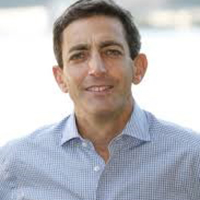
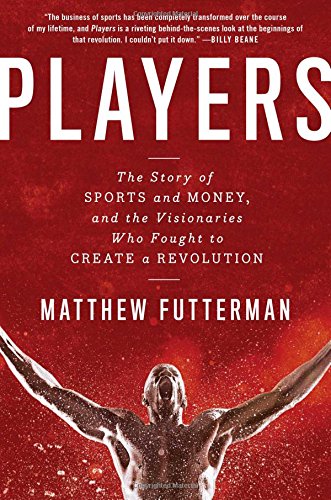
Matthew Futterman
author of "Players: The Story of Sports and Money, and the Visionaries Who Fought to Create a Revolution"
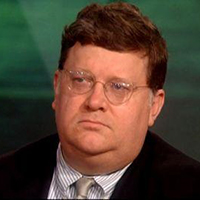
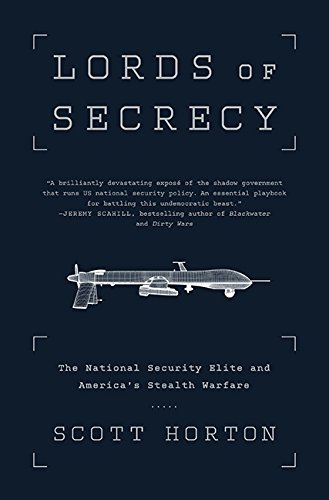
Scott Horton
author of "Lords of Secrecy: The National Security Elite and America's Stealth Warfare"
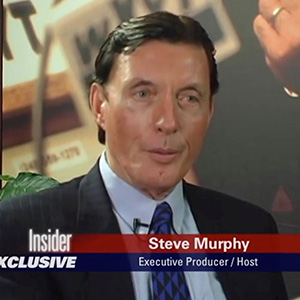
Steve Murphy
Executive Producer & Host
Matthew Futterman, author of "Players: The Story of Sports and Money, and the Visionaries Who Fought to Create a Revolution"
Matthew Futterman's Website
Matthew Futterman is a senior special writer for sports with The Wall Street Journal. He has previously worked for The Philadelphia Inquirer and the Star-Ledger of New Jersey, where he was a part of the team that won the Pulitzer Prize for Breaking News in 2005. He lives in New York with his wife and children.
The Book: "Players: The Story of Sports and Money, and the Visionaries Who Fought to Create a Revolution"
ISBN: 1476716951
Get the bookNEW YORK TIMES BESTSELLER
“The business of sports has been completely transformed over the course of my lifetime, and Players is a riveting behind-the-scenes look at the beginnings of that revolution. I couldn’t put it down.” —Billy Beane
The astonishing untold story of the people who transformed sports, in the span of a single generation, from a job that required top athletes to work in the off-season to make ends meet into a massive global business.
In the cash-soaked world of contemporary sports, where every season brings news of higher salaries, endorsement deals, and television contracts, it is mind-boggling to remember that as recently as the 1970s elite athletes earned so little money that many were forced to work second jobs in the off-season. Roger Staubach, for example, made only $25,000 in his first season as the starting quarterback for the Dallas Cowboys and wound up selling commercial real estate during the summer. Today, when Fortune reports that every athlete on its Top 50 list makes more than twenty million dollar per year, it’s clear that a complete reversal of power has occurred right before our eyes.
Players is the first book to tell the astonishing narrative behind the creation of the modern sports business—a true revolution that moved athletes from the bottom of the financial pyramid to the top. It started in 1960, when a young Cleveland lawyer named Mark McCormack convinced a young golfer named Arnold Palmer to sign with him. McCormack simply believed that the best athletes had more commercial value than they realized—and he was right. Before long, he raised Palmer’s annual off-the-course income from $5,000 to $500,000 and forever changed the landscape of the sports world.
In Players, veteran Wall Street Journal sports reporter Matthew Futterman introduces a wide-ranging cast of characters to tell the story of the athletes, agents, TV executives, and league officials who together created the dominating and multifaceted sports industry we know today. Beginning with Palmer and McCormack’s historic partnership, Players features details of the landmark moments of sports that have never been revealed before, including how legendary Wide World of Sports producer Roone Arledge realized that the way to win viewers was to blend sports and human drama; the 1973 Wimbledon boycott, when eighty-one of the top tennis players in the world protested the suspension of Nikola Pilic; and baseball pitcher Catfish Hunter’s battle to become MLB’s first free agent.
Players is a gripping, fly-on-the-wall account of the creation and rise of the modern sports world and the people who fought to make it happen. From the professionalization of the Olympics to the outsize influence of companies like IMG, Nike, and ESPN, this fascinating book details the wild evolution of sports into the extravaganza we experience today, and the inevitable trade-offs those changes have wrought.
Scott Horton, author of "Lords of Secrecy: The National Security Elite and America's Stealth Warfare"
Scott Horton's Website
Scott Horton is a New York attorney known for his work in emerging markets and international law, especially human rights law and the law of armed conflict. He lectures at Columbia Law School. A life-long human rights advocate, Scott served as counsel to Andrei Sakharov and Elena Bonner, among other activists in the former Soviet Union. He is a co-founder of the American University in Central Asia, where he currently serves as a trustee, and has been involved in some of the most significant foreign investment projects in the Central Eurasian region. Scott recently led a number of studies of abuse issues associated with the conduct of the war on terror for the New York City Bar Association, where he has chaired several committees, including, most recently, the Committee on International Law. He is also a member of the board of the National Institute of Military Justice, the EurasiaGroup and the American Branch of the International Law Association and a member of the Council on Foreign Relations. He was a partner at Patterson, Belknap, Webb & Tyler until January 2007, when he left to write a book on private military contractors and to manage a project on that subject for Human Rights First. Since April 2007 he has also been a legal affairs and national security contributor to Harper’s magazine and the author of a regular opinion column for the American Lawyer.
The Book: "Lords of Secrecy: The National Security Elite and America's Stealth Warfare"
ISBN: 1568587457
Get the bookForty years ago, a majority of Americans were highly engaged in issues of war and peace. Whether to go to war or keep out of conflicts was a vital question at the heart of the country’s vibrant, if fractious, democracy. But American political consciousness has drifted. In the last decade, America has gone to war in Iraq and Afghanistan, while pursuing a new kind of warfare in Yemen, Somalia, Libya, and Pakistan. National security issues have increasingly faded from the political agenda, due in part to the growth of government secrecy.
In lucid and chilling detail, journalist and lawyer Scott Horton shows how secrecy has changed the way America functions. Executive decisions about war and peace are increasingly made by autonomous, self-directing, and unaccountable national security elites. Secrecy is justified as part of a bargain under which the state promises to keep the people safe from its enemies, but in fact allows excesses, mistakes, and crimes to go unchecked. Bureaucracies use secrets to conceal their mistakes and advance their power in government, invariable at the expense of the rights of the people. Never before have the American people had so little information concerning the wars waged in their name, nor has Congress exercised so little oversight over the war effort. American democracy is in deep trouble.
Lords of Secrecy explores the most important national security debates of our time, including the legal and moral issues surrounding the turn to private security contractors, the sweeping surveillance methods of intelligence agencies, and the use of robotic weapons such as drones. Horton looks at the legal edifice upon which these decisions are based and discusses approaches to rolling back the flood of secrets that is engulfing America today.Whistleblowers, but also Congress, the public, and the media, play a vital role in this process.
As the ancient Greeks recognized, too much secrecy changes the nature of the state itself, transforming a democracy into something else. Horton reminds us that dealing with the country’s national security concerns is both a right and a responsibility of a free citizenry, something that has always sat at the heart of any democracy that earns the name.